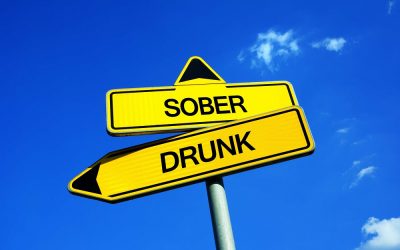Our compassionate approach empowers individuals to view relapse as an opportunity for deeper growth, not as a failure. It won’t just be a case of halting the destructive behavior; change will be apparent in multiple aspects of their lifestyle. Self-care and self-understanding are both present in this treatment stage, but counseling is required to keep them on the right path. When it comes to the preparation stage, the individual is building a sense alcoholism treatment of urgency regarding their desire for sobriety.
The importance of professional support at each stage
Too, there may be long gaps in a resume that are hard to explain away. Insufficient experience or skill deficits are other common hurdles. Experts believe that tackling the emotional residue of addiction—the guilt and shame—is fundamental drug addiction recovery to building a healthy life. It’s not possible to undo the damage that was done, but it is possible to build new sources of self-respect by acknowledging past harms, repairing relationships, and maintaining the commitment to recovery.
What are the principles of effective treatment?
Until the individual recognizes a need to change, they will remain in the precontemplation stage. In some cases, a severe incident, such as an overdose or drug-related death of a friend, can prompt a person to progress from this stage. This model explains the stages a person goes through when making significant changes to their behaviors. It includes the fluid and non-linear nature of traversing these stages and the importance of personal willingness and motivation to change. Addiction recovery often occurs through five stages, which can vary in duration for each person. Stages can occur one after the other, or they can be non-linear, with many returning to previous stages before reaching sobriety.
- Understanding the stages of addiction recovery can empower individuals to identify where they are in their recovery process.
- This form of treatment can be done at a doctor’s office or via telehealth appointment.
- Stunning success in halting Huntington’s disease with gene therapy offers new hope to those with the disorder—and potential advances against Parkinson’s and Alzheimer’s.
- The stages of addiction recovery aren’t necessarily linear, and people don’t stay in them for a set amount of time.
- For example, getting over nicotine addiction takes about 8 to 12 weeks3, but alcohol addiction recovery can last from 3 to 6 months3.
Drug Addiction Treatment in Charlotte, NC

Researchers find that taking incremental steps to change behavior often motivates people to eventually choose abstinence. Nevertheless, many treatment programs, including Alcoholics Anonymous, require a commitment to complete abstinence as a condition of admission. Millions of people do, whether they were once compulsive users of opiates, alcohol, or gambling. You must understand alcohol or drug addiction and their causes before you can overcome them. The factors that lead to substance abuse and addiction are different for each person.
For certain drug types, some symptoms are less prominent, and in some cases, not all symptoms apply. For example, withdrawal symptoms are not specified for inhalant use. Outpatient rehab offers flexible, affordable care for mild to moderate substance, mental, or physical issues while keeping daily routines intact.
It seems that there is an agreement on the notion that not using substances is at the core of the definition, even if some people may be using a small amount of one substance or another. Once an individual has successfully completed the initial stages of addiction recovery, it is crucial to focus on maintaining their progress and preventing relapse. This stage of the recovery process involves implementing various strategies and seeking ongoing support and aftercare. It is also important to recognize and celebrate the milestones achieved along the way.
- This phase is characterized by defensiveness and endless justification of their behavior.
- Behavioral therapies focus on modifying unhealthy behaviors and promoting positive changes in thought patterns and actions.
- S. National Survey on Drug Use and Health, more than 75 percent of people addicted to alcohol or drugs recover—their condition improves and substance use no longer dominates their life.
- Incorporating these self-care and wellness practices into the addiction recovery journey can contribute to long-term success and well-being.
Recovery is a lifelong journey, and many individuals experience one or more relapses before achieving lasting sobriety. What matters most is how a person responds after a relapse — whether they recommit to their goals, seek support, and apply what they’ve learned. For many members of 12-step recovery programs, these steps aren’t merely a way to overcome addiction—they are a guide toward a new way of life. Some of the best-known 12-step programs include Alcoholics Anonymous (AA), Narcotics Anonymous (NA), and Cocaine Anonymous (CA).
- This stage sets the foundation for the recovery journey by creating awareness and motivation for change.
- Saying a mantra, substituting thoughts of recovery goals, praying, reading something recovery-related, reaching out to someone supportive—all are useful tactics.
- Methadone Anonymous is a similar 12-step program that acknowledges the value of maintenance therapy with methadone or Suboxone (buprenorphine/naloxone) for recovery.
- Many people believe that they are powerless to change their own addictive behavior, and often it is a belief that keeps people addicted.
- Recovery is a lifelong journey, and many individuals experience one or more relapses before achieving lasting sobriety.
At every step of the way, support from friends, peers, and family is useful, but there are also many services and organizations that provide guidance., and many can be accessed through Recovery Community centers. Return to use is most common during the first 90 days of recovery. Relapse carries an increased risk of overdose if a person uses as much of the drug as they did before quitting. Shame is an especially powerful negative feeling that can both invite addiction in the first place and result from it.
View Treatment Centers
Learned healthy coping was the fourth attribute of the theoretical phase of concept analysis. Overcoming dependence on substance use and coping with the issues it poses are an important aspect of recovery. Finding new and better ways to cope with the stressors of life by reaching out for help are important in the recovery experience. Recovery refers to the way in which a person with addiction or impacted by addiction experience actively manages the disorder or its residual effects in the process of reclaiming full treatment. People feel stronger than prior to the onset of their illnesses (22).

It starts in a dark forest of denial and moves through to understanding, then to action, and finally, a long period of keeping steady. For those dealing with substance abuse, the recovery path has key milestones. Once in recovery, relapse is common, but this doesn’t have to derail drug addiction recovery. While relapse is discouraging, it should not be seen as a failure. Attending drug addiction recovery groups, seeing a counselor, talking to a sober friend or seeing a doctor can all be used to get back on the path of drug addiction recovery.
This knowledge fosters self-awareness and allows them to recognize the steps they need to take towards sobriety. By understanding that relapse is often a part of the journey, individuals can develop resilience and motivation to continue seeking help through addiction treatment and support systems. After the initial recovery efforts, the focus shifts to maintenance—the ongoing process of sustaining sobriety and preventing relapse. This stage requires continuous effort and vigilance, as individuals must consistently apply the skills they have learned to manage stress, avoid triggers, and maintain a healthy lifestyle.




